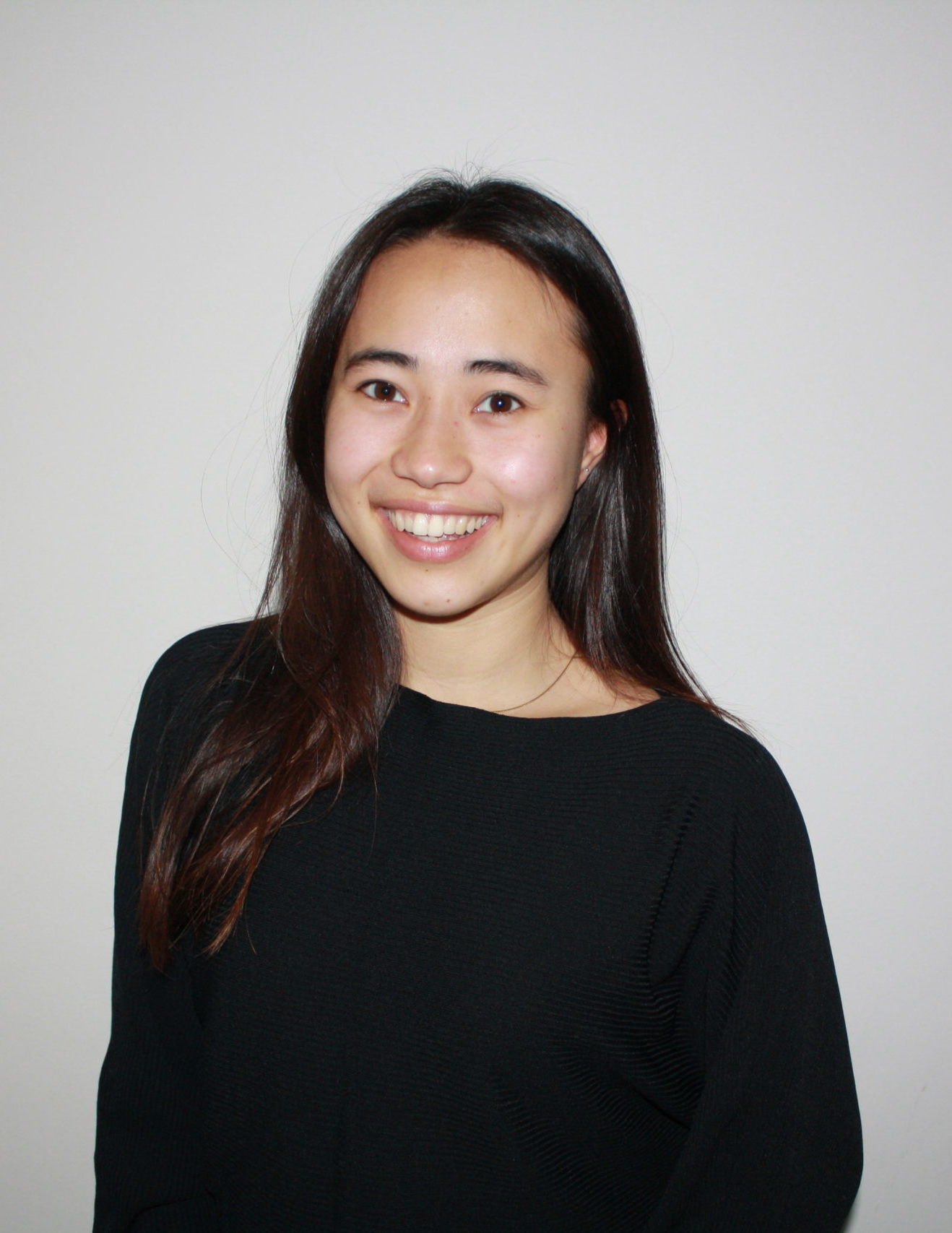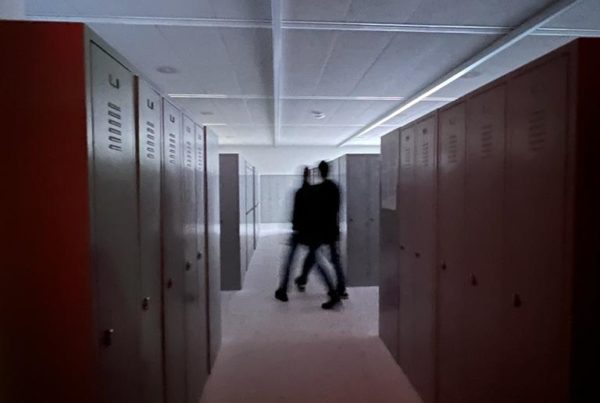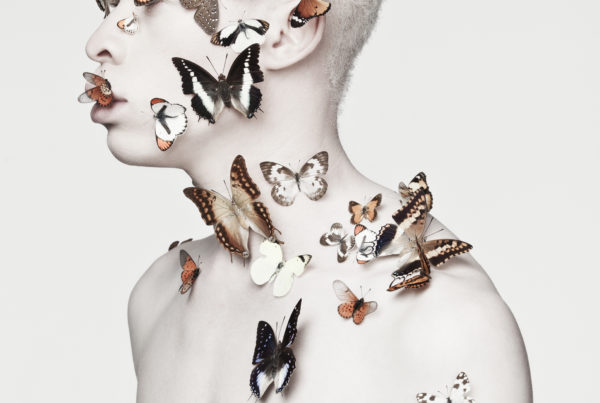

Sophie Hall
What is it like to be a Psychology student? Three questions for Sophie Hall (bachelor, first year).
What is the most useful thing that you’ve learned from Psychology?
‘The most interesting thing for me is how widely applicable psychology is in everyday life, and that was quite unexpected going into the programme. The topics we learn are often based on concepts we are all somewhat familiar with, but it’s almost shocking how all those abstract concepts are rooted in such a core knowledge base that we relearn in a more structured way. Probably most importantly, we are constantly discussing things that we deal with in our daily lives and it is amazing how truly entwined we each are with psychology.’
What do you like and dislike about Psychology at UvA?
‘UvA gives you a lot of flexibility to organise your life, both schedule- and study topic wise. Not only do we get to put our fingers in different pots by focusing on various domains of psychology, we also have enough time to digest what we have acquired. Especially given that certain concepts repeat themselves throughout the different courses, I feel like we now have a more established understanding of the core theories. On the other hand, this flexibility along with the amount of free time we have means you have to fill in the blanks with other activities to make your study a little more exciting (if you’re someone who can’t bear to do nothing like me). For instance, students take up work, volunteering or join student associations to spice up their student life. Another related issue is that we are unable to do electives or a minor in the first year, which feels quite restrictive in terms of exploring other studies we might also enjoy, particularly in comparison to other study programmes that some of my friends in Taiwan or the UK are doing.’
How has living in- and travelling to other countries different from your native one changed you as a person?
‘Different cultures have their own preferences in how things should be done, whether that is political, cultural, or social. Experiencing that doesn’t necessarily lead you to accept how those cultures function, but rather gives you a perspective to keep in mind that others do things differently to you. What I learned from traveling is that you come to realise people are similar. Despite the different physical appearances, geographical areas or the language spoken, people feel, think and live the same just as me or you do. I’ve only lived in a few countries, Taiwan, Spain, the UK and now the Netherlands, but in all of these beautiful places, I’ve found different cultural features that I’ve chosen to incorporate into my own life. The Taiwanese culture which I grew up with taught me to be proud of my origins and to be welcoming by sharing what you love with those you love around you. The Spanish culture taught me the free-spirited attitude and passion. The British taught me the importance of getting to know myself better and always being kind to others. The Dutch culture, or at least my experience in Amsterdam so far, showed me that it’s possible for a place to be multicultural in the best way, where you can simply be who you truly are. All in all, travelling teaches you to be like a sponge, where you absorb what you appreciate about a culture, and leave what you don’t connect to.’

Sophie Hall
What is it like to be a Psychology student? Three questions for Sophie Hall (bachelor, first year).
What is the most useful thing that you’ve learned from Psychology?
‘The most interesting thing for me is how widely applicable psychology is in everyday life, and that was quite unexpected going into the programme. The topics we learn are often based on concepts we are all somewhat familiar with, but it’s almost shocking how all those abstract concepts are rooted in such a core knowledge base that we relearn in a more structured way. Probably most importantly, we are constantly discussing things that we deal with in our daily lives and it is amazing how truly entwined we each are with psychology.’
What do you like and dislike about Psychology at UvA?
‘UvA gives you a lot of flexibility to organise your life, both schedule- and study topic wise. Not only do we get to put our fingers in different pots by focusing on various domains of psychology, we also have enough time to digest what we have acquired. Especially given that certain concepts repeat themselves throughout the different courses, I feel like we now have a more established understanding of the core theories. On the other hand, this flexibility along with the amount of free time we have means you have to fill in the blanks with other activities to make your study a little more exciting (if you’re someone who can’t bear to do nothing like me). For instance, students take up work, volunteering or join student associations to spice up their student life. Another related issue is that we are unable to do electives or a minor in the first year, which feels quite restrictive in terms of exploring other studies we might also enjoy, particularly in comparison to other study programmes that some of my friends in Taiwan or the UK are doing.’
How has living in- and travelling to other countries different from your native one changed you as a person?
‘Different cultures have their own preferences in how things should be done, whether that is political, cultural, or social. Experiencing that doesn’t necessarily lead you to accept how those cultures function, but rather gives you a perspective to keep in mind that others do things differently to you. What I learned from traveling is that you come to realise people are similar. Despite the different physical appearances, geographical areas or the language spoken, people feel, think and live the same just as me or you do. I’ve only lived in a few countries, Taiwan, Spain, the UK and now the Netherlands, but in all of these beautiful places, I’ve found different cultural features that I’ve chosen to incorporate into my own life. The Taiwanese culture which I grew up with taught me to be proud of my origins and to be welcoming by sharing what you love with those you love around you. The Spanish culture taught me the free-spirited attitude and passion. The British taught me the importance of getting to know myself better and always being kind to others. The Dutch culture, or at least my experience in Amsterdam so far, showed me that it’s possible for a place to be multicultural in the best way, where you can simply be who you truly are. All in all, travelling teaches you to be like a sponge, where you absorb what you appreciate about a culture, and leave what you don’t connect to.’



